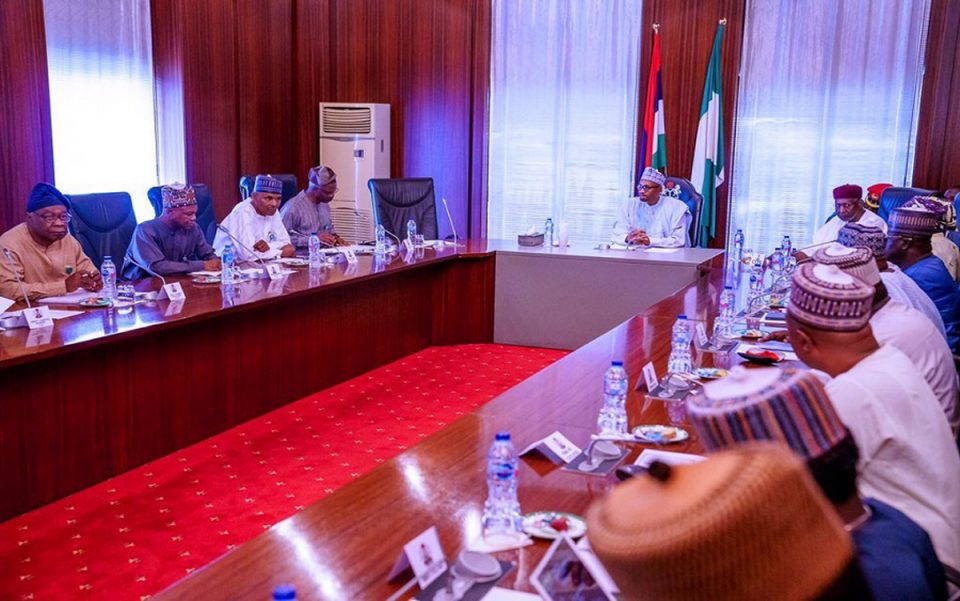The National Assembly has jettisoned the request by members of President Muhammadu Buhari’s Economic Advisory Council (EAC) for a single regulatory agency for the upstream, midstream and downstream sectors of the oil and gas industry.
However, the EAC’s advice that the federal government should not hold 100 per cent stake in the proposed company, Nigerian National Petroleum Corporation (NNPC) Limited was heeded to by the lawmakers, who have now set in motion the process of fully commercialising the national oil company.
The Doyin Salami-led organisation charged with the responsibility of advising the President Muhammadu Buhari on economic policy matters in a recent presentation at its sixth regular meeting with the president had opposed a provision in the PIB that recommended two regulators for the industry.
While stressing that one regulator was enough, the EAC had argued that it would be more efficient and allow for greater synergy in regulating the entire industry value-chain, citing the examples of the Nigerian Communications Commission (NCC) and the Nigerian Electricity Regulatory Commission (NERC).
But in the versions of the bill passed by the lawmakers, they indicated that while the Nigerian Midstream and Downstream Petroleum Regulatory Authority shall oversee the midstream and downstream, the Nigerian Upstream Regulatory Commission will regulate the upstream part of the industry.
According to the legislation, which is currently being harmonised before being sent to the president for his assent, the Authority shall be responsible for the technical and commercial regulation of midstream and downstream petroleum operations in the petroleum industry.
“(It) will regulate midstream and downstream petroleum operations, including technical, operational, and commercial activities; ensure efficient, safe, effective and sustainable infrastructural development of midstream and downstream petroleum operations;
“(In addition) it will promote healthy, safe, efficient and effective conduct of midstream and downstream petroleum operations in an environmentally acceptable and sustainable manner (and) promote a competitive market for midstream and downstream petroleum operations
“It will promote the supply and distribution of natural gas and petroleum products in midstream and downstream petroleum operations and the security of natural gas supply for the domestic gas market; ensure compliance with applicable laws and regulations governing midstream and downstream petroleum operations,” the proposed law stressed.
For the Nigerian Upstream Regulatory Commission, the recently passed bill indicated that it shall be responsible for the technical and commercial regulation of upstream petroleum operations. In addition, it will ensure that upstream petroleum operations are carried out in a manner to minimise waste and achieve optimal government revenues and promote healthy, safe, efficient and effective conduct of upstream petroleum operations in an environmentally acceptable and sustainable manner.
The commission will further ensure efficient, safe, effective and sustainable infrastructural development of upstream petroleum operations; determine, administer and ensure the implementation and maintenance of technical standards, codes, practices and specifications applicable to upstream petroleum operations pursuant to good international petroleum industry practices, among others.
The legislation also failed to address issues in the gas sector raised by Shell, Nigeria over domestic obligations before companies are allowed to export gas.
Managing Director of Shell Nigeria Exploration and Production Company (SNEPCo), Mr Bayo Ojulari, had at a recent forum stated that that the condition set for exportation of gas resources by companies operating in the sector in the bill will stifle competition.
“Currently, the version of the PIB that we have is not sufficient and will not enable us incentivise investors to unlock the huge non-associated gas that we have,” he had argued.
In the domestic gas space, Ojulari had noted that the PIB requires the fulfilment of domestic gas obligation as a condition to export gas which potentially puts long-term export gas supply at risk, adding that the country needed to move away from the “unproductive” debate about satisfying local need before shipping gas abroad.
But the pending law prescribed the allocation of the domestic gas delivery obligation on a lessee based on the domestic gas demand requirements determined or updated pursuant to section 173 of the Act.
“A lessee may, on a voluntary basis, conclude contracts with wholesale customers of the strategic sectors or with wholesale gas suppliers supplying the sectors for delivery of marketable natural gas to the customers or suppliers and notify the commission of the contracts.
“Provided that where the volume of the contract is equal to or higher than the domestic gas delivery obligation for the lessee, the lessee shall be deemed to have fulfilled its domestic gas delivery obligation,” it said.
On the supply of crude oil and condensates for the domestic market, the legislation said that it shall be on a willing supplier and willing buyer basis, but noted that crude oil may only be sold to holders of crude oil refining licences, whose refineries are in operation.
“The supply of crude oil shall be commercially negotiated between the lessee and the crude oil refining licensee, having regard to the prevailing international market price for similar grades of crude oil,” it said.




